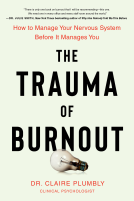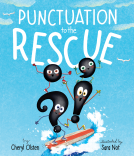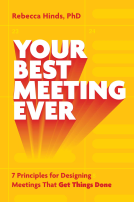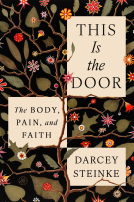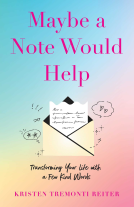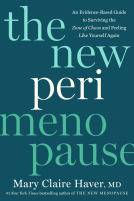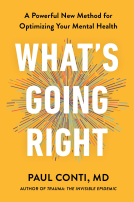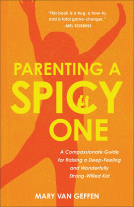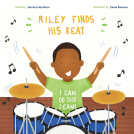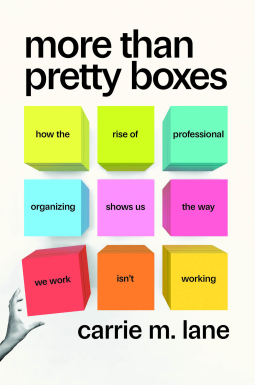
More Than Pretty Boxes
How the Rise of Professional Organizing Shows Us the Way We Work Isn’t Working
by Carrie M. Lane
This title was previously available on NetGalley and is now archived.
Send NetGalley books directly to your Kindle or Kindle app
1
To read on a Kindle or Kindle app, please add kindle@netgalley.com as an approved email address to receive files in your Amazon account. Click here for step-by-step instructions.
2
Also find your Kindle email address within your Amazon account, and enter it here.
Pub Date Nov 22 2024 | Archive Date Nov 01 2024
Talking about this book? Use #MoreThanPrettyBoxes #NetGalley. More hashtag tips!
Description
For a widely dreaded, often mundane task, organizing one’s possessions has taken a surprising hold on our cultural imagination. Today, those with the means can hire professionals to help sort and declutter their homes. In More Than Pretty Boxes, Carrie M. Lane introduces us to this world of professional organizers and offers new insight into the domains of work and home, which are forever entangled—especially for women.
The female-dominated organizing profession didn’t have a name until the 1980s, but it is now the subject of countless reality shows, podcasts, and magazines. Lane draws on interviews with organizers, including many of the field’s founders, to trace the profession’s history and uncover its enduring appeal to those seeking meaningful, flexible, self-directed work. Taking readers behind the scenes of real-life organizing sessions, More Than Pretty Boxes details the strategies organizers use to help people part with their belongings, and it also explores the intimate, empathetic relationships that can form between clients and organizers.
But perhaps most importantly, More Than Pretty Boxes helps us think through an interconnected set of questions around neoliberal work arrangements, overconsumption, emotional connection, and the deeply gendered nature of paid and unpaid work. Ultimately, Lane situates organizing at the center of contemporary conversations around how work isn’t working anymore and makes a case for organizing’s radical potential to push back against the overwhelming demands of work and the home, too often placed on women’s shoulders. Organizers aren’t the sole answer to this crisis, but their work can help us better understand both the nature of the problem and the sorts of solace, support, and solutions that might help ease it.
Advance Praise
“A surprising number of us live with too much stuff or face life crises in which what used to be a comfortable amount turns into overwhelming excess. This all-too-common problem has led to professional organizing, a job that Carrie M. Lane describes with great warmth and humor as she shows how these everyday champions of personal order emerged as a modern-day professional guild to bring solace to clients afflicted with some of the curses of capitalist consumption. More Than Pretty Boxes is a captivating exploration of how a feminized job gains recognition and symbolic value—ethnography at its most sympathetic, savvy, and subtle.” ― Ilana Gershon, author of "The Pandemic Workplace: How We Learned to Be Citizens in the Office"
“I began my career as a professional organizer in 2008, at the age of fifty and after a twenty-five-year stint in higher education, earning a Ph.D. in women’s history along the way. As such, I read More Than Pretty Boxes with particular interest. Lane offers a unique blend of storytelling, history, biography, and analysis on an understudied group of entrepreneurs, mostly women, who navigate the closets and underwear drawers of their clients. Examining the industry through the lens of feminism and the ‘doubly gendered’ nature of the work, Lane offers a rare glimpse into the mind and heart of these ‘therapists of capitalism.’” ― Regina F. Lark, Ph.D. and founder of A Clear Path, LLC
“Lane has managed to perfectly capture the spirit and soul of the organizing profession. As a twenty-year ‘industry insider,’ I was delighted by her insightful take on what makes organizers tick and the nuance with which we approach this work that we love. I found her exploration of the rise of the profession as a reflection of the realities of the modern U.S. labor market to be especially interesting and relevant to my own lived experience. I would recommend this book for anyone who is already operating within the profession, curious about organizing for a career, or contemplating hiring an organizer for support in their home or business.” ― Mindy Godding, president, National Association of Organizing and Productivity Professionals
“More Than Pretty Boxes takes us into the fascinating world of professional organizing. With an anthropologist’s keen eye, Lane shows us how the rise of this profession is a sign of our times—an age of overwork, overwhelm, and uncertainty, in which too much is being asked of women at work and at home. In this deeply researched book she provides an up close view into the societal burdens placed on women—to be the good employee, the perfect mother, and to have the perfect home—and how professional organizers (mostly women) become the ‘therapists of capitalism,’ helping their clients (mostly women) to better cope by decluttering their homes and by doing the ‘feminist work’ of encouraging clients to let go of the perfectionist standards put on them. This is an important book and a must read.” ― Marianne Cooper, VMware Women’s Leadership Innovation Lab at Stanford University
“Gripping from the very start, More Than Pretty Boxes takes us inside the homes where people feel trapped by their stuff and allows us to witness the intimate care-work of the professional organizers working their magic. With an acute analysis leavened by humor and compassion, Lane chronicles the ‘palpable too-muchness’ of contemporary life and shows how it is linked to trends in work, family, and gender. It turns out that organizing is feminist care-work, a connective labor plumbing meaning from clients and bringing new identities within reach. And as Lane tells it, the (mostly) women who create this profound alchemy are themselves forging a path towards new forms of meaningful work. This fascinating book is at once critical and deeply humane, straightforward about the challenges that face us and yet hopeful with the bracing air of possibility.” ― Allison J. Pugh, author of "The Last Human Job: The Work of Connecting in a Disconnected World"
Available Editions
| EDITION | Other Format |
| ISBN | 9780226832777 |
| PRICE | $27.50 (USD) |
| PAGES | 288 |
Available on NetGalley
Average rating from 8 members
Featured Reviews
 Reviewer 1540961
Reviewer 1540961
This is a great book to help with organization and decluttering! I think it was very helpful, I took a lot of tips and tricks from this book. I suffer from clutter and I am hopeful and excited to try tactics that this book called out.
Thank you to NetGalley, the publishers, and especially the author for this ARC in exchange for my honest review of the book!!
 J. K, Reviewer
J. K, Reviewer
Thanks to the publisher and Netgalley for this eARC.
Carrie M. Lane’s “More Than Pretty Boxes” is a thought-provoking exploration of the professional organizing industry and its broader implications on our work and personal lives. This insightful book delves into the rise of professional organizers, shedding light on how their work reflects and challenges the overwhelming demands of modern society.
Lane takes readers behind the scenes of real-life organizing sessions, offering a detailed look at the strategies organizers use to help clients declutter and regain control over their spaces.
One of the book’s strengths is its ability to contextualize the professional organizing industry within the larger framework of capitalist consumption. By examining the roots of our disorganization, Lane provides a compelling critique of the way we work and live.
Lane’s writing is both engaging and accessible, making complex sociological concepts easy to understand. Her warmth and humor shine through, particularly in her descriptions of the organizers she profiles.
“More Than Pretty Boxes” also explores the gendered dimensions of organizing work. This nuanced analysis adds depth to the book, making it not just a guide to decluttering but a broader commentary on societal expectations and gender roles.
“More Than Pretty Boxes” is a must-read for anyone interested in the professional organizing industry, as well as those looking to understand the deeper societal forces at play in our daily lives. Carrie M. Lane’s insightful and empathetic approach makes this book both informative and inspiring.
Whether you’re a fan of organizing or simply looking to make sense of the clutter in your life, this book offers valuable perspectives and practical advice.
 Educator 1511420
Educator 1511420
Interesting background on the professional organization field. Well-researched in depth and breadth.
 Tracey S, Reviewer
Tracey S, Reviewer
This was a super interesting study into the rise of the professional organiser - US focused - by someone who seems to have thrown herself into the job alongside organising veterans.
Mostly discussed is the role of the organiser not only in physically clearing space but also acting as a stand in therapist for their clients; and also that the societal roles of organising generally fall to women, and that's why the industry is mainly built on women helping women.
My favourite parts were the specific case studies and getting to hear the nuances of each job, and less so the academic leanings (which are not too hardcore).
Fascinating!
 jc C, Educator
jc C, Educator
More Than Pretty Boxes : How the Rise of Professional Organizing Shows Us the Way We Work Isn’t Working. This is a really interesting study on the rise of the professional organiser market. It is a totally different angle and provides lots of food for thought. The individual case studies made it very interesting and added lots of depth. Overall a great book.
 Rebecca T, Educator
Rebecca T, Educator
Fascinating book about the history of personal (home and office, not union) organizing as a profession dominated by women, mostly white, and its relationship to all the stuff we own and the precarity of American life, influenced by the author’s participant observation. Organizing has appeal as a career for women for whom conventional workplaces were insufficiently flexible, and also lets them help other women whose own lives are too inflexible, bleeding off some of the tension caused by the systemic problems we face.
Although the mountains of stuff we have are easy to blame on consumerism, Lane argues that “organizers offer forms of care and connection hard to come by in today’s society.” One reason we have so much stuff is that we have so many fewer people in our lives. We have to handle by ourselves many tasks that would have been handled by family, government, employers, or community in the past. And American individualism frames reliance on others as weakness.
Also, we engage in “wishful shopping,” “purchasing items that stand in for the activities [we] would like to do or the people [we] would like to be.” This makes decluttering psychologically fraught: Getting rid of those items is symbolically “ ‘to murder the version of ourselves we envision using it.’” Thus, one primary function of an organizer is to handle the items, which makes them easier to dispose of; telling the organizer the story of the items can also help the client (almost always also a woman) feel better about getting rid of them. Professional organizers fall within a category of expert service workers offer “the sort of assistance, empathy, and connection many Americans so desperately desire” and generally love their work, finding in it autonomy, mastery, the satisfaction of helping others, and social engagement, as well as money.
At the same time, self-employment brings its own challenges—they’re always hustling. And it’s harder for women with young children, without spouses, from poorer communities, and/or who aren’t white.
The history involves an attempt to professionalize starting in the 1970s. I didn’t know that in the early 20th century, secretaries were sometimes known as “office wives.” In order to lay claim to a higher status, many organizers— “then and now—refuse to do more than cursory cleaning on the job.” They also analogized their work to that of doctors and therapists, “albeit at the expense of potential solidarity with similarly female-dominated occupations.” Lane notes, however, that doctors do not refer to themselves as “professional doctors,” nor are there “professional lawyers.” Instead, those professions rely on their histories and credentials, which organizers initially lacked. Early organizers claimed gender as an asset, but also accepted raced and classed ideals of professionalism that privileged full-time work and dividing work from home life, demeaning “dabblers”; these ideals were inherently more difficult for women with children to satisfy. Still, these ideals of a collaborative culture had many attractions, including that members of an industry could succeed together rather than competing, especially since there was so much work to go around. But they often framed unwillingness to charge a high enough rate as a gender-specific flaw: “professionalism was framed as a non-gendered set of beliefs and behaviors, unprofessionalism was understood as the province of women.” Meanwhile, the few male organizers “tend to garner a lot of praise and positive attention,” while Black women organizers often feel isolated, even after 2020 and a lot of talk about becoming more inclusive.
Organizers end up choosing between different kinds of insecurity—traditional paid employment is incompatible with the other kinds of unpaid work they’re expected by their families and others around them to perform, but to be “professional” they often “internalized the idea that working long, unrestricted hours and being constantly available to clients is what it takes to run and grow a successful organizing business.”
I found Lane’s descriptions of the organizing process itself to be fascinating: “physically distancing clients from their possessions; encouraging clients to focus on their present-day needs and priorities, rather than imaginary future ones; creating space for clients to dwell on their feelings about a particular object—to tell its story—before releasing it; and asking clients to consider who might need or enjoy a specific item more than the client themself, thus transforming the act of discarding unwanted goods into a gesture of generosity and compassion.” The basic idea is straightforward—group, sort into types, get rid of a bunch, put the remains back in useful places—but has to be customized, especially since “seeing everything laid out in front of you also brings home the reality of how much you actually own.” The organizers Lane worked with didn’t like reality organizing shows because of how clients were treated: they didn’t like yelling at clients and preferred to convince them to part with items, including by getting them to take photos as mementoes. Apparently, it can be helpful to think about the feelings of the object, especially for people who hoard or are chronically disorganized, who “tend to personify things anyway,” and “especially when dealing with items that had been gifted or inherited.” This provides “permission to get rid of an object while also affirming that the client was a good person who valued their relationships and organizers often asked if the giver would have wanted to burden the client with the object.” But it’s not a good idea to set an item aside to sell or give later—it should go when you make that decision, and can just foist a decision onto someone else. Instead, organizers keep lists of local charities handy and know who needs or accepts what. “[A] dog lover, for instance, might be more moved by the idea of donating surplus sheet sets to an animal shelter than to Goodwill.”
Organizers also focus on feelings about space: “how it will feel to be able to walk through the guest room without having to navigate stacks of boxes,” or “what you’ll also want when you want this item” to decide what to store together. This is emotional labor: “relationships that are intimate but not equal, genuine but temporary.” Unlike many other emotional laborers, though, organizers are “self-employed, earn high hourly wages, and have similar class backgrounds to the clients they serve.” Lane writes that she was “struck by how rare it was to hear organizers frame their clients as entitled or overly demanding.” Instead, they saw their clients as “deserving of support and assistance due to the many demands placed on clients’ time and energy.” They would often give special low rates when they saw someone as specially in need.
I also learned that, as a rule, “organizers discourage clients from buying organizing products” because “most people who decide to hire an organizer already own more organizing products than they need.” People with pantries shown in magazines and TV shows are likely to have full-time staff. And an organizer can deliver that message with more conviction: “If even an organizer can’t achieve that ideal, it must be okay.” Capitalism’s reliance on women’s unpaid work is running the tank dry. Organizers help some, at the margins, but they can’t fix that.
Thank you University of Chicago Press and Netgalley for an ebook review copy of this book. All opinions in this review are my own.
More Than Pretty Boxes is an exploration of career of professional organizing and what it shows us about our culture. Lane begins with going through the history of the field and the women who started it, before describing the people currently in this field, the work they do, and the role this work has in our current culture. Throughout the book Lane describes her experiences working with professional organizing as she prepared for this book.
The first section of this book describes the history of the field of professional organizing while the second section of this book describes the place professional organizing has in the world. Each of the sections was interesting in different ways. The first section shined light on a career I did not know existed until it seemed to pop into the world through popular media. The second section provides a look at the current field while considering what organizing can and cannot do. Throughout these parts, Lane is able to take a view of organizing that considers other cultural aspects and people. I found interested her discussion of the gendered conceptualizations of professionalism and the way in which it impacts the primarily women led workforce of professional organizing. She also provides discussions of the ways in which race and culture influence professional organizers. These discussions allowed for me to understand the different ways in which different identities influence this field.
I also appreciated that while Lane clearly respects the field of professional organizing, she also acknowledges that the field has its own problems and that it cannot save our current overworking culture. Rather, she considers professional organizing as a field to provide potential lessons, in both its successes and failures that we can use as we work for change. Overall, I thought this book was an illuminating look at a field I had not considered much previously. If an approachable, but slightly academic exploration of the field of professional organizing sounds good to you, I highly recommend picking up More Than Pretty Boxes.
Readers who liked this book also liked:
Yuzuru Kuki
Biographies & Memoirs, Children's Nonfiction, Comics, Graphic Novels, Manga
James Burks
Children's Fiction, Comics, Graphic Novels, Manga, Middle Grade

